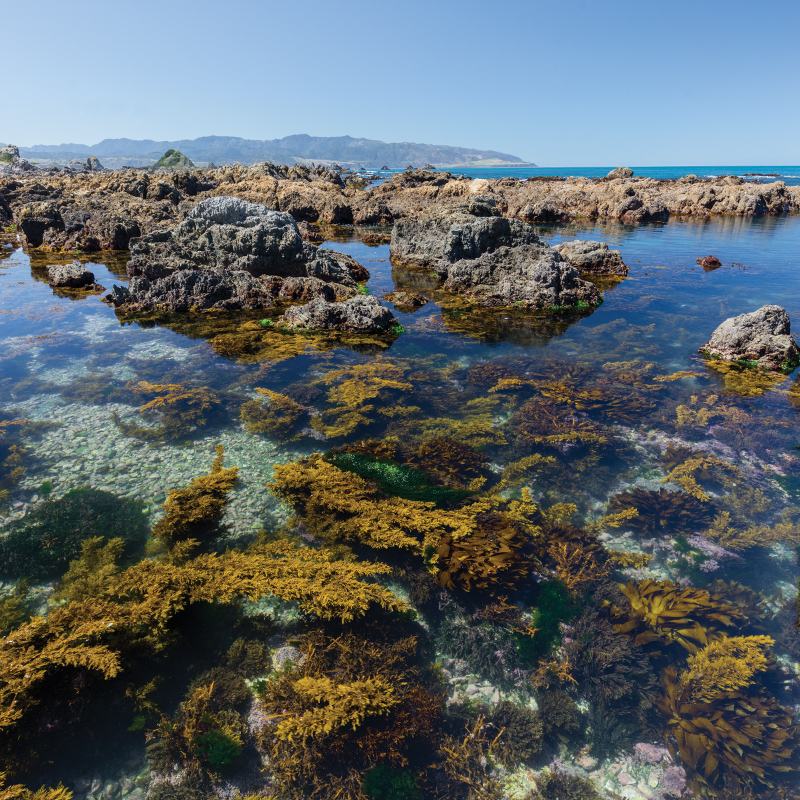ben·thos | /ˈben-ˌthäs/

If you’ve ever waded into a lake, river, or the sea, you may have been unnerved by mystery benthos grazing your feet. When exploring rock pools, you may have been enchanted by the colours and variety of benthos populating these pocket universes. Outside of these experiences, most of us have likely paid scant attention to the benthic world. Benthos, an Ancient Greek expression for the depths of the sea, has been adopted by biologists as an umbrella term for the millions of organisms living on or around the bottom of bodies of water – be they fresh or saline, a garden pond, or the Pacific Ocean.
The marine benthic world extends vertically for over 11 kilometres from the spray zone above the high tide mark (called the supralittoral zone) to the uttermost depths of the oceans (called the hadal zone). In between are the littoral, sublittoral, bathyal, and abyssal zones.
On the upper levels, organisms like barnacles, snails, algae, seaweeds and coral reef communities enjoy the sun-kissed high life. At the other end of the spectrum are the abyssal and hadal benthos. Spare a thought for these ultimate bottom feeders, eking out a low-energy, high-pressure existence in total darkness thousands of metres below the sunlit surface. At these depths, much of the benthos is dependent on organic materials falling from the upper waters. The constant shower of detritus – known as marine snow or food rain – contains such appetising delights as the moults of crustaceans, corpses, plankton mucus, and faeces.
Introduction Aeolian Alpenglow Apricity Asperous
Benthos Crepuscular Crispate Crown shyness
Desire lines Dreich Endragoned Edgelands
Frondescence Fumarole Gluggaveður Gossamer
Karst Komorebi Lawrence Long acre
Machair Monkey’s wedding Moonglade
Psithurism Quartz Rakuyou Roaring forties
Snag Soft estate Specular, diffuse and pellucid
Spoondrift Steam fog Swash zone Sylvan